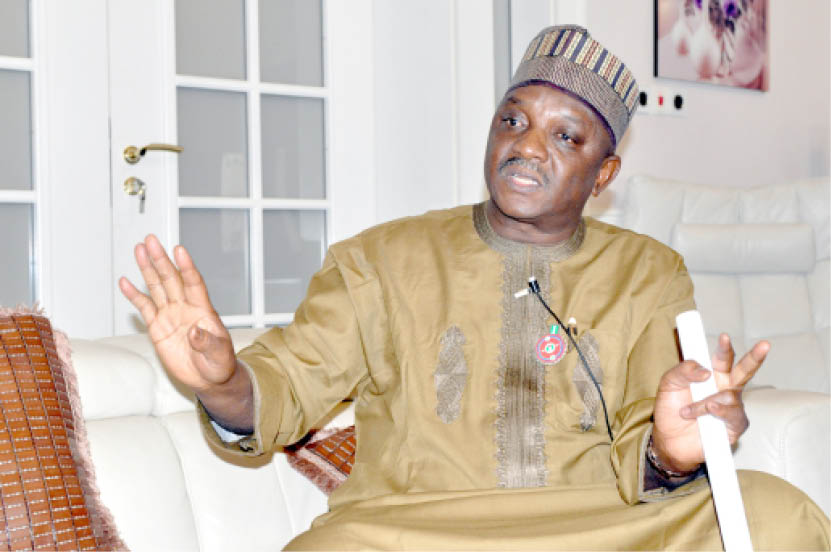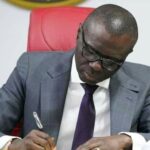The Minister of Power, Mr Saleh Mamman, has directed the Nigerian Electricity Regulatory Commission (NERC) to inform all Electricity Distribution Companies(DISCOs) to revert to tariffs that were applicable in Dec. 2020.
Mr Aaron Artimas, Senior Special Adviser, Media and Communications to the Minister of Power, made this known in a statement in Abuja on Thursday.
He said that the reversal to the old tariff was to promote a constructive conclusion of the dialogue with the Labour Centres (through the Joint Ad-Hoc Committee).
“I have directed NERC to inform all DISCOs that they should revert to the tariffs that were applicable in December 2020 until the end of January 2021 when the FGN and Labour committee work will be concluded.
“This will allow for the outcome of all resolutions from the Committee to be implemented together,” he said.
‘False claim’
The minister spoke against the backdrop of the report that electricity tariff had been increased by 50 per cent.
“I would like to affirm that these reports are inaccurate and false.
“It is unfortunate that these reports have led to confusion with the public.
“On the contrary, Government continues to fully subsidise 55 per cent of on-grid consumers in bands D and E and maintain the lifeline tariff for the poor and underprivileged.
“Those citizens have experienced no changes to tariff rates from what they have paid historically, aside from the recent minor inflation and forex adjustment.
“Partial subsidies were also applied for bands A, B and C in October 2020,” he said.
This may not be entirely true as all consumers, who spoke to Daily Trust, said they have experienced a significant hike in tariff in their recent recharge. Some noticed over 50 percent hike in the electricity tariff.
Mamman claim that the public was aware that the Federal Government and the Labour Centres had been engaged in positive discussions about the electricity sector through a Joint Ad-hoc Committee.
He said that the committee was led by Mr Festus Keyamo, Minister of State for Labour and Productivity and Co-Chaired by the Minister of State for Power, Mr Goddy Jedy-Agba.
According to him, progress has been made in these deliberations which are set to be concluded at the end of January.
“Some of the achievements of this deliberation with Labour are the accelerated rollout of the National Mass Metering Plan and clamp downs on estimated billing.
“Improved monitoring of the Service Based Tariff and the reduction in tariff rates for bands A to C in October 2020 (that were funded by a creative use of taxes),” he said.
The minister stated that it should be cleared that the regulator must be allowed to perform its function without undue interference.
He said that the role of the Government was not to set tariffs, but to provide policy guidance and an enabling environment for the regulator to protect consumers and for investors to engage directly with consumers.
According to him, Bi-Annual Minor reviews to adjust factors such as inflation are part of the process for a sustainable and investable Nigeria Electricity Supply Industry (NESI)
He also stated that the regulator must be commended for implementing the subsisting regulations while putting in place extensive actions to minimise the adverse impact on end user tariffs.
“The administration is committed to creating a sustainable, growing and rules-based electricity market for the benefit of all Nigerians.
“The administration and the Ministry of Power will also continue to devise means to provide support for vulnerable Nigerians while ensuring we have a sustainable NESI,” he said.
Consumers groan
The federal government probably took the decision to revert to the status quo following the reaction of Nigerians to the sudden hike in the electricity tariff.
Daily Trust had reported that customers of the 11 Distribution Companies (DisCos) and consumers of electricity expressed outrage over the significant rise in their tariff rate, above the N4 maximum stated by the NERC.
NERC, which approved the tariff for the DisCos, said on Tuesday that the hike was between N2 and N4, but a cross section of consumers who had recharged their meters recently, insisted the increase was above N4.
A twitter user, Richard Daniel under Port Harcourt DisCo, said he often gets 153.9 units when he recharges his meter with N5000 worth of token.
However, that has reduced to 88 units now, when he vended last week, indicating 42 per cent increase.
Shamsudeen Ibrahim, a resident in Abuja under Abuja DisCo, said previously, N10,000 vending got him 386 units as of November but he only got N197 units recently.
“That is about a 49 per cent increase.
“We are just being deceived that the increment is not more than N4.”
John Okon said he had expected 38 units for vending of N1,000 but got 19 units instead, showing a 50 per cent increase.
Another customer, who also spent N10,000 and had expected 380 units said he was shocked to get less than that.
“Just less than two weeks ago, the unit after the increment for N10,000 was 120 units, which is around 68 per cent hike.”
Mr. Precious Abu, a barber shop owner in Kuje area of FCT, said he used to get about 118 units for N3000 before the previous increase but it has dropped.
In Makurdi, the Benue State capital, Gowon Joel, said previously, he was getting 63 units for N2,000 under Jos DisCo, but on Wednesday when he recharged his meter, he got 57 units for N3000, signifying a drop to 38 units for N2,000.
In Lafia, Nasarawa State, a consumer said his usual 114.48 unit of token of N3,000 has dropped to 67 units.
In Osogbo, Osun State, Mr Opeyemi Bello, a civil servant, said: “The unit I got is half of the previous ones.
“Last year, with N1,000, I received 36 units but this January, the N1,000 electricity is just 15 units.”

 Join Daily Trust WhatsApp Community For Quick Access To News and Happenings Around You.
Join Daily Trust WhatsApp Community For Quick Access To News and Happenings Around You.


